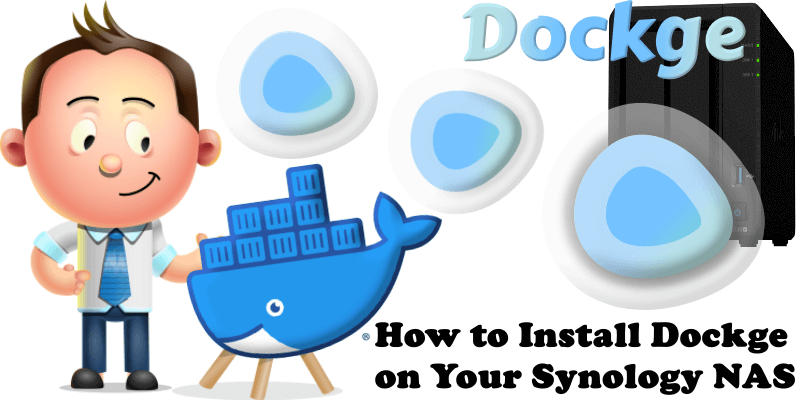
Dockge is a fancy, easy-to-use and reactive self-hosted docker compose.yaml stack-oriented manager alternative to Portainer. With Dockge you can easily manage your compose.yaml files, providing a central point for all your Docker configuration needs. Includes options to create, edit, start, stop, restart, and delete Docker configurations, offering full lifecycle management of your Docker environments. In this step by step guide I will show you how to install Dockge on your Synology NAS using Docker.
This guide works perfectly with the latest Dockge v1.5.0 release.
STEP 1
Please Support My work by Making a Donation.
STEP 2
Install Container Manager via Synology “Package Center”. If you run an older DSM version (under 7.2), search for Docker instead of Container Manager.
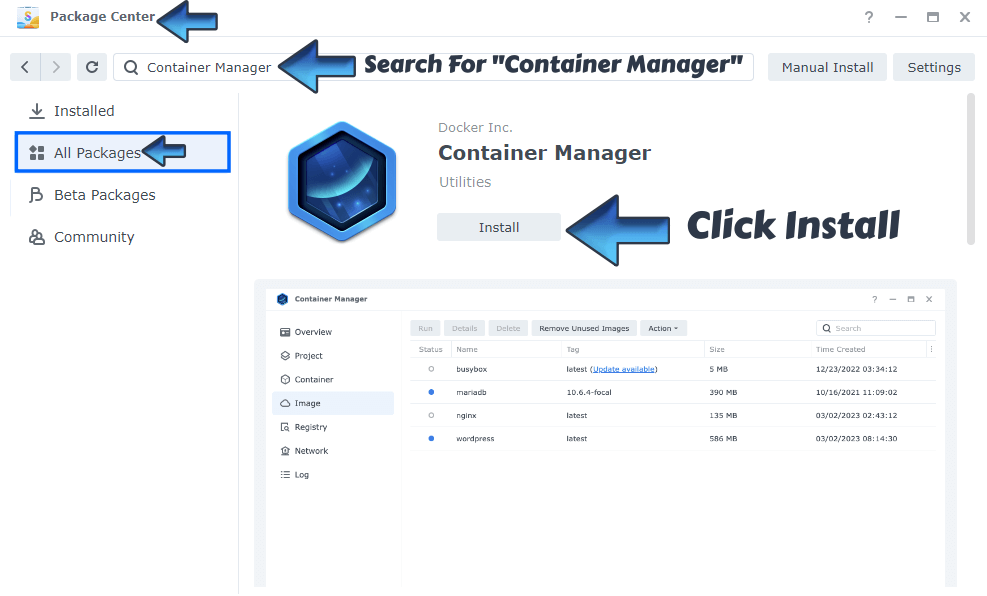
STEP 3
Go to File Station and open the docker folder. Inside the docker folder create a new folder and name it dockge. Follow the instructions in the images below.
Note: Be careful to use only lowercase, not uppercase letters.
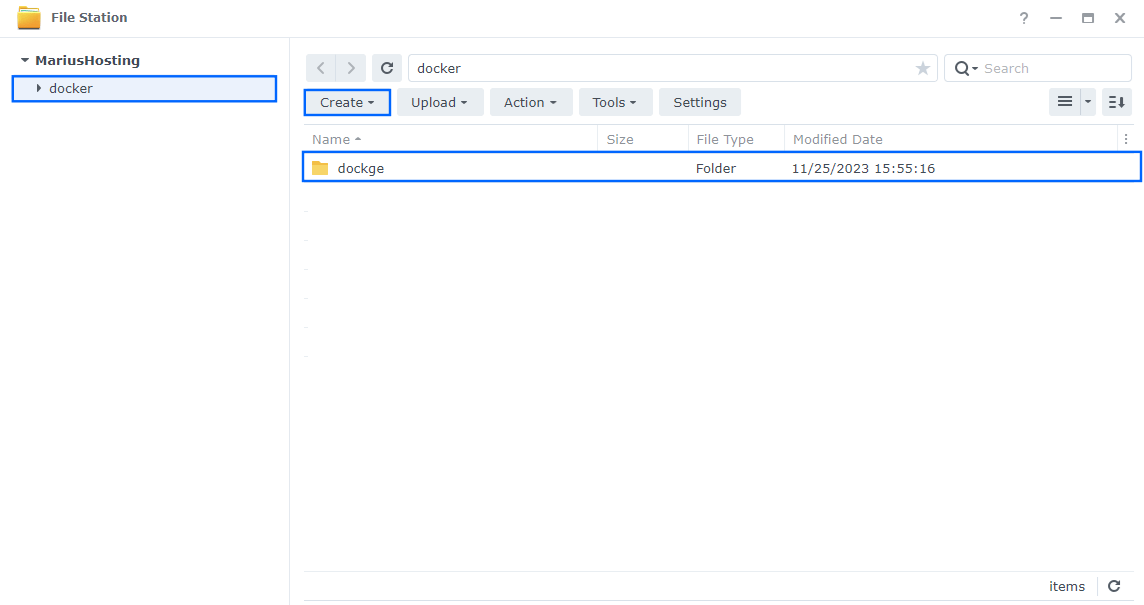
STEP 4
Now create two new folders inside the dockge folder that you previously created at STEP 3 and name them data and stacks. Follow the instructions in the image below.
Note: Be careful to enter only lowercase, not uppercase letters.
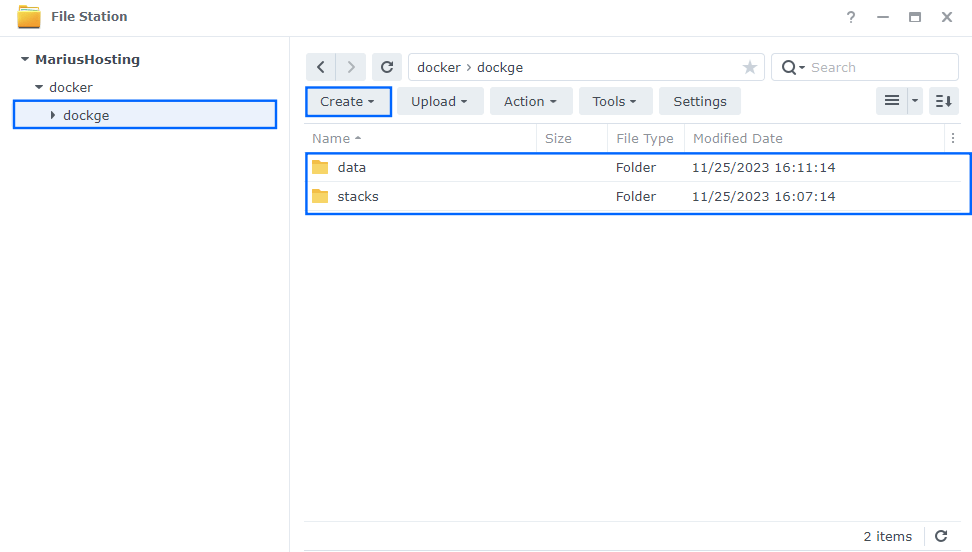
STEP 5
In the stacks folder that you have previously created at STEP 4, create folders for every docker container that you have a compose.yaml file for. For example, I created a folder named Dozzle for the Dozzle container.
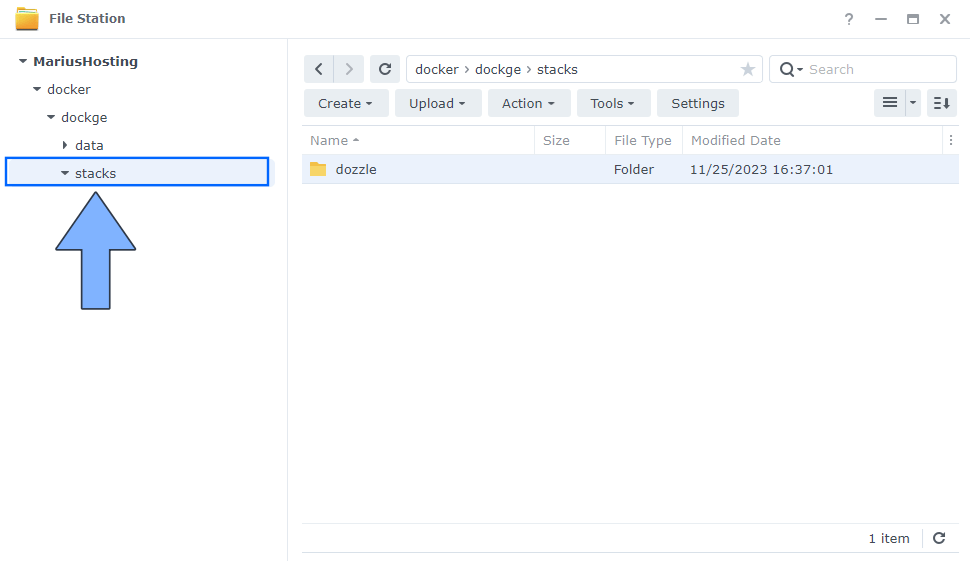
Then, in the dozzle folder, I uploaded the compose.yaml file that I provide at STEP 9 in my Dozzle article. Repeat this operation for every container that you have a compose.yaml file for. First create the folder, then upload the compose.yaml file in it. For every container, the file name should be called compose.yaml – Only the folder should have a different name. Example: For the Dozzle container, create a folder called dozzle and upload the compose.yaml file in it. For the Calibre container, create a folder called calibre and upload the compose.yaml file in it. And so on.
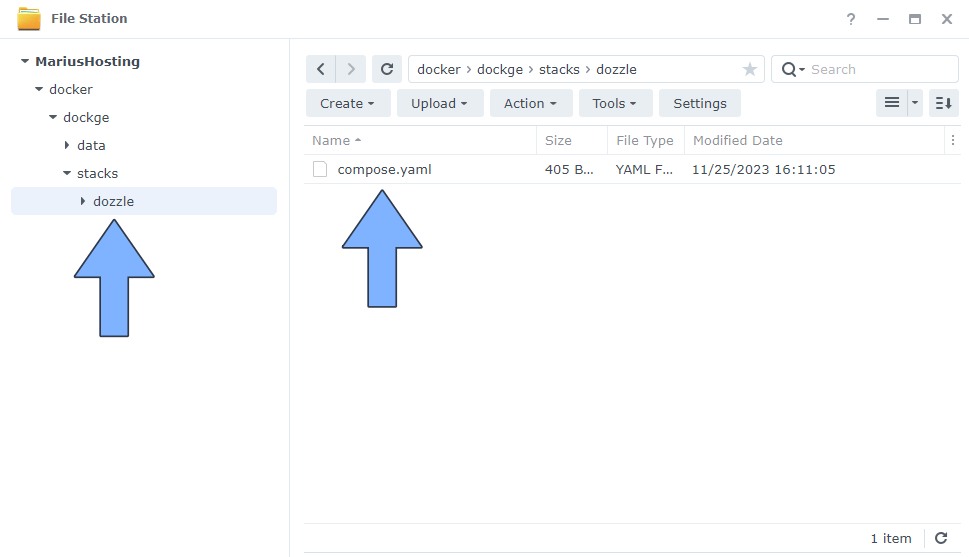
What is compose? With Compose, you use a YAML file to configure your application’s services. Then, with a single command, you create and start all the services from your configuration. Do this operation for every container that you have a compose.yaml file for.
STEP 6
Go to Control Panel / Task Scheduler / Create / Scheduled Task / User-defined script. Follow the instructions in the image below.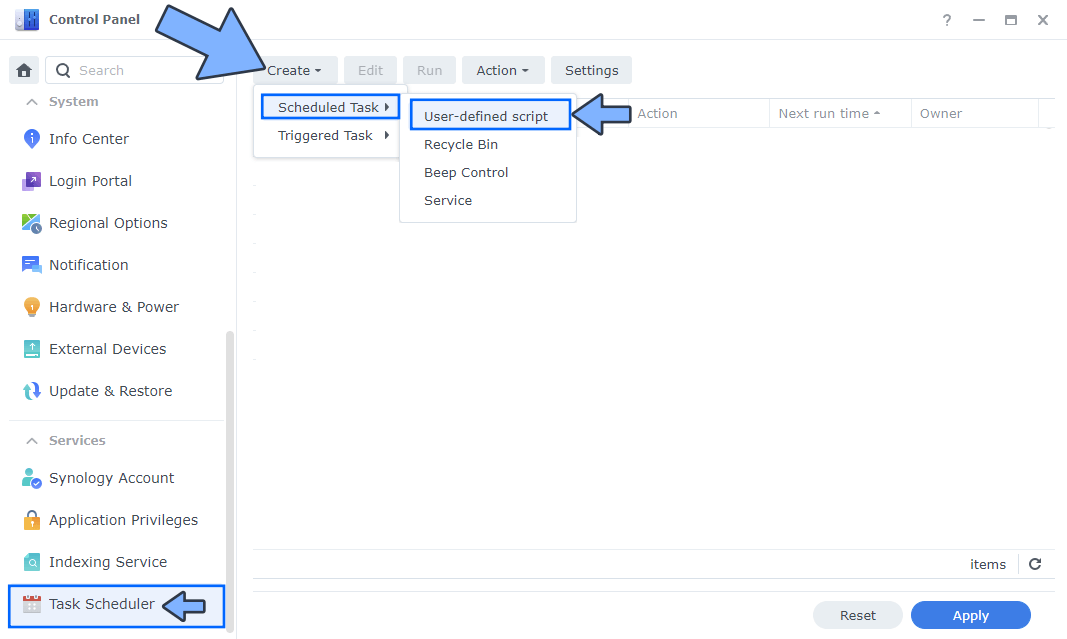
STEP 7
Once you click on User-defined script, a new window will open. Follow the instructions below:
- General: In the Task field type in “Install Dockge“. Uncheck the “Enabled” option. Select root User.
- Schedule: Select Run on the following date then select “Do not repeat“.
- Task Settings: Check “Send run details by email“, add your email then copy paste the code below in the Run command area. After that click OK.
docker run -d --name=Dockge \ -p 5571:5001 \ -v /var/run/docker.sock:/var/run/docker.sock \ -v /volume1/docker/dockge/stacks:/volume1/docker/dockge/stacks \ -v /volume1/docker/dockge/data:/app/data \ -e DOCKGE_STACKS_DIR=/volume1/docker/dockge/stacks \ --restart=always \ louislam/dockge:1
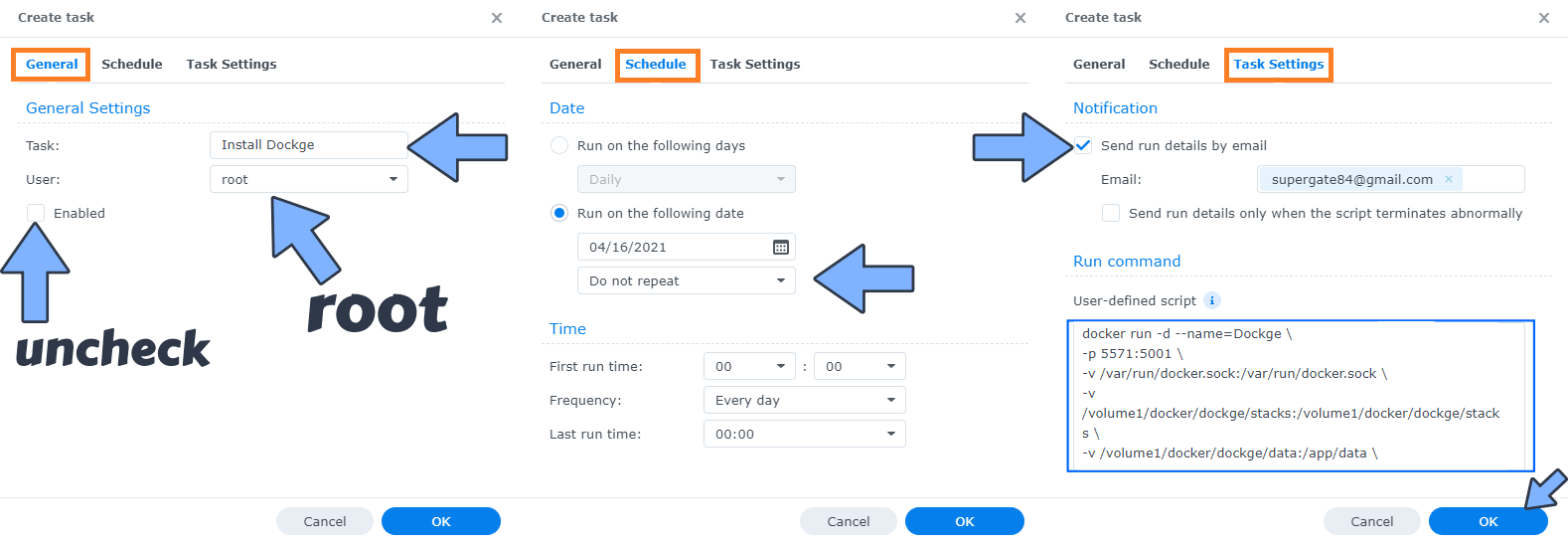
STEP 8
After you click OK on STEP 7 a new warning pop up window will open. Click OK.
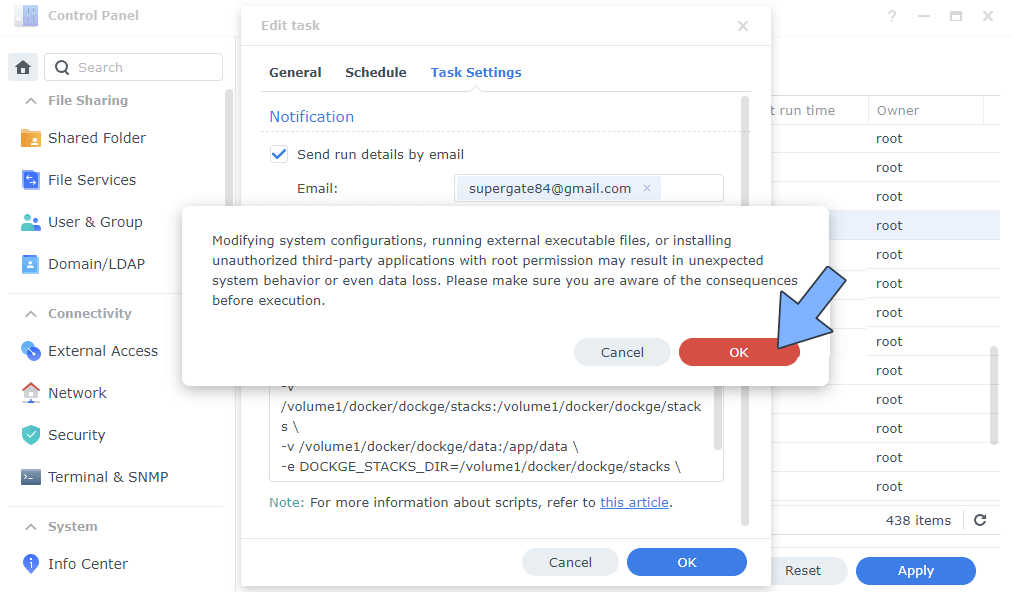
After you click OK, type in your DSM Password then click Submit. Follow the instructions in the image below.
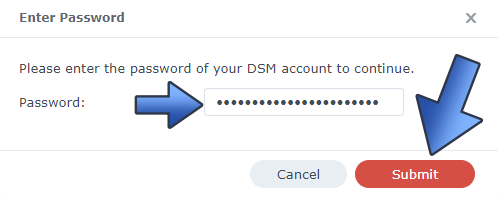
STEP 9
After you click Submit at STEP 8, select your “Install Dockge” Task then click the “Run” tab. You will be asked to run Install Dockge – click OK. Follow the instructions in the image below.
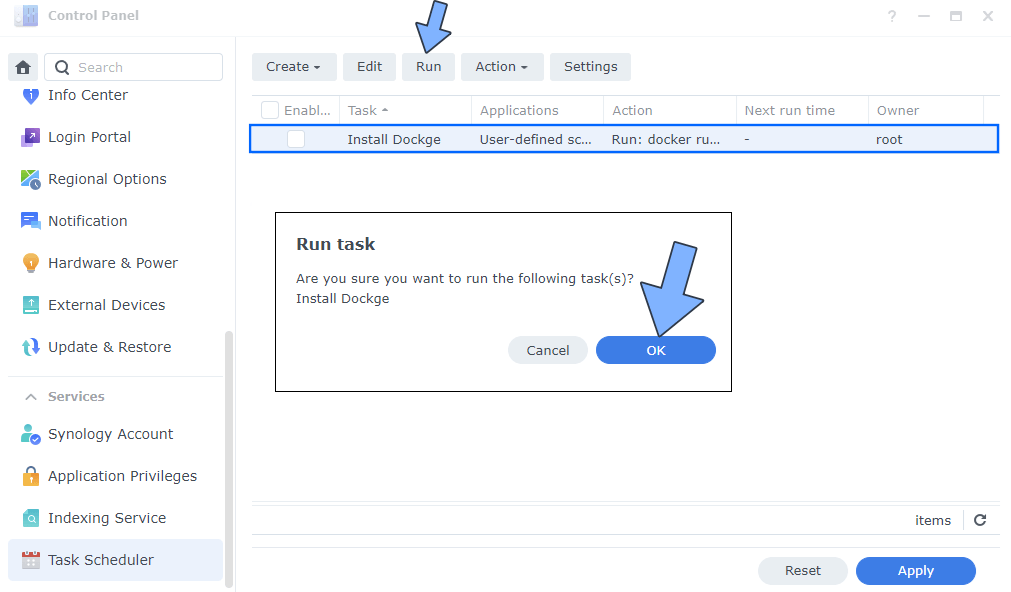
STEP 10
🟢Please Support My work by Making a Donation. Almost 99,9% of the people that install something using my guides forget to support my work, or just ignore STEP 1. I’ve been very honest about this aspect of my work since the beginning: I don’t run any ADS, I don’t require subscriptions, paid or otherwise, I don’t collect IPs, emails, and I don’t have any referral links from Amazon or other merchants. I also don’t have any POP-UPs or COOKIES. I have repeatedly been told over the years how much I have contributed to the community. It’s something I love doing and have been honest about my passion since the beginning. But I also Need The Community to Support me Back to be able to continue doing this work.
STEP 11
The installation process can take up to a few seconds/minutes. It will depend on your Internet speed connection. Now open your browser and type in http://Synology-ip-address:5571 Type in your details then click Create. Follow the instructions in the image below.
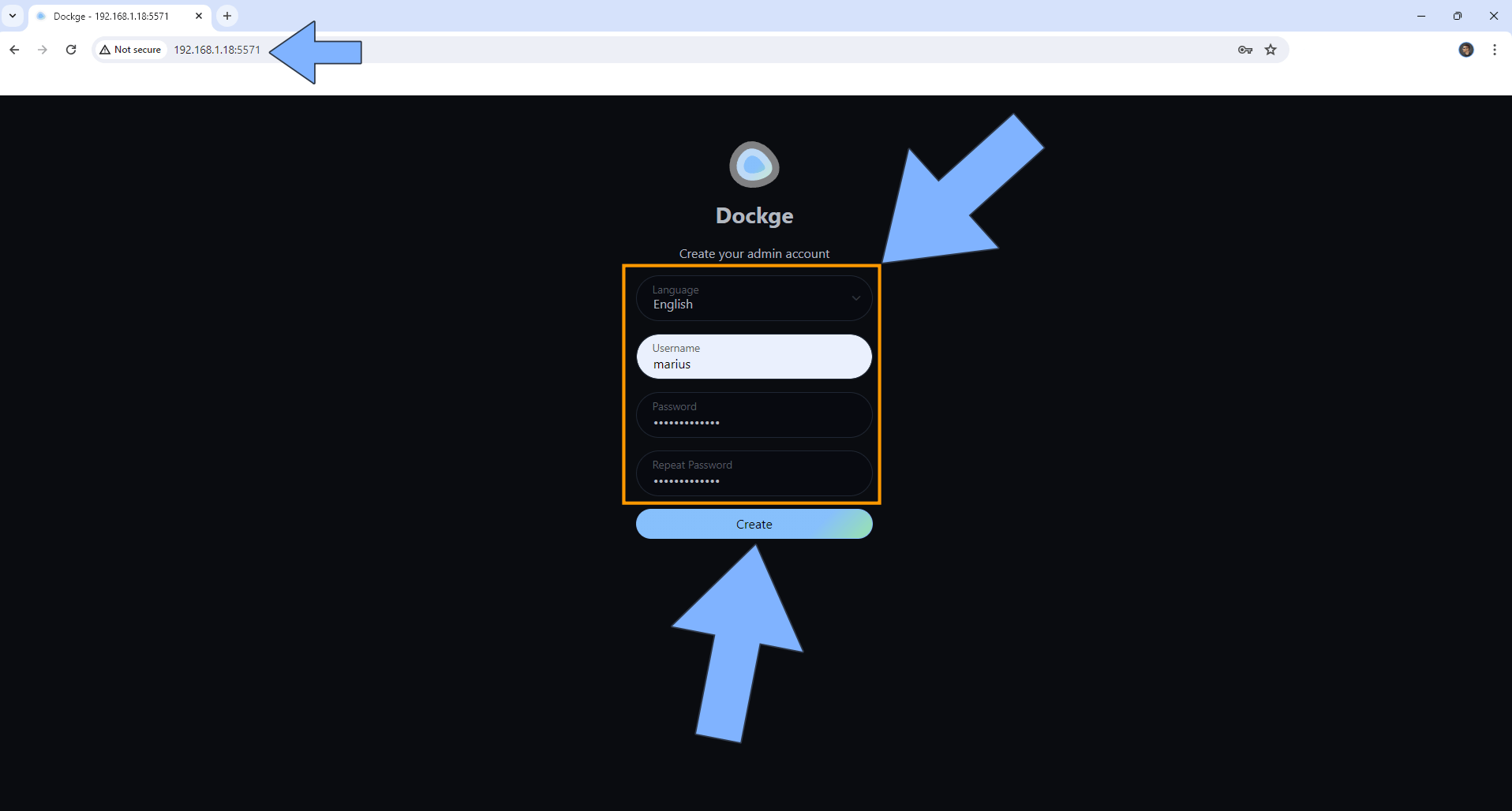
STEP 12
In the Dockge left sidebar, you will see all your compose folders. For example, you can start the installation for Dozzle by clicking Start. First of all, in file station, you will need to create the dozzle folder following the same exact STEPs that you used in Portainer before deploying the Dozzle stack. Note: If you see different stacks on the left sidebar, the stacks that are marked “active”, but greyed out, will be the ones created outside Dockge. For example, the stacks created with Portainer. You can just switch to Dockge gradually in the future, if you want. Follow the instructions in the image below.
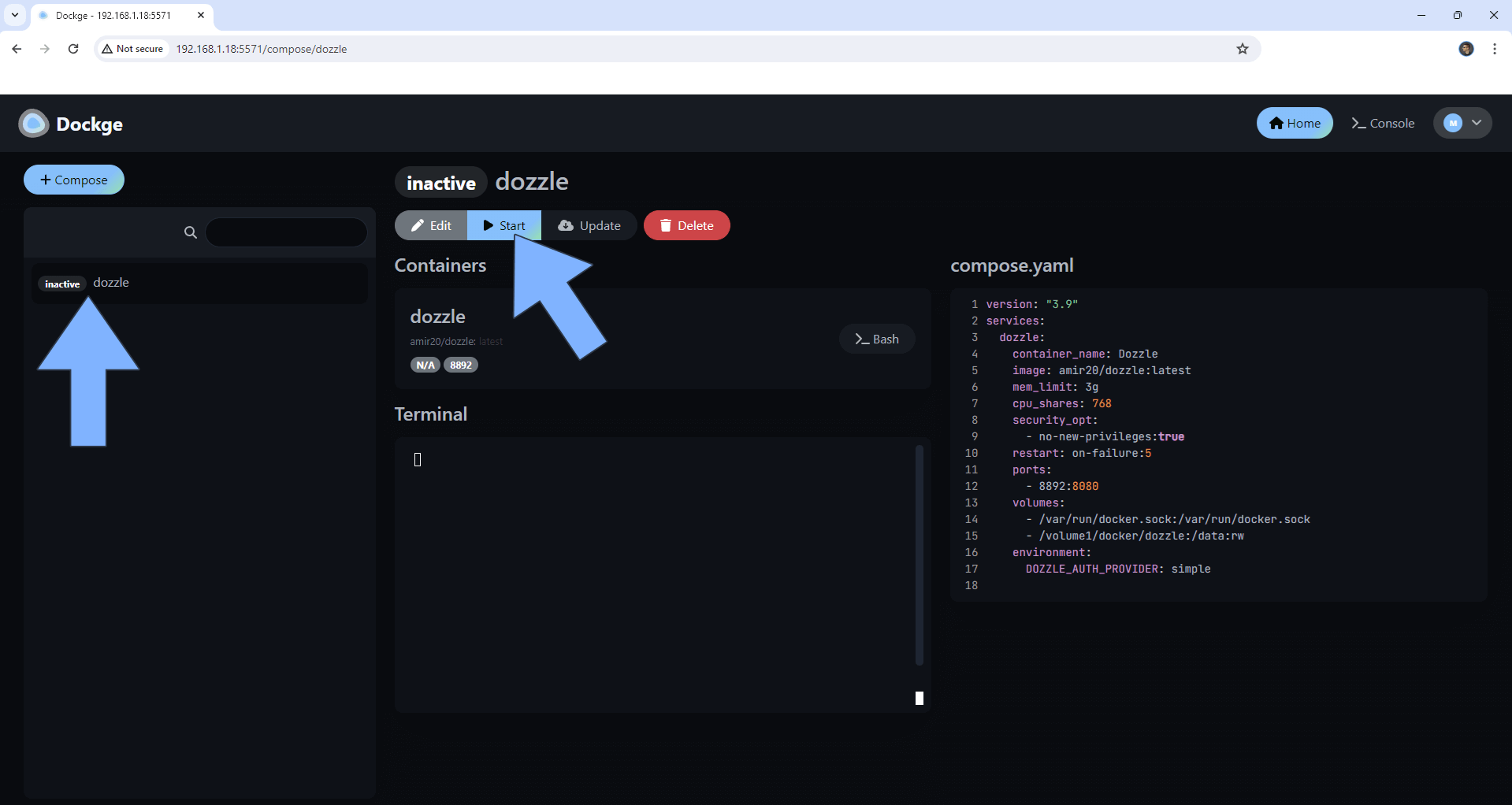
STEP 13
Once you click the Start button at STEP 12, your container installation will be deployed. Click the port to open it. Follow the instructions in the image below.
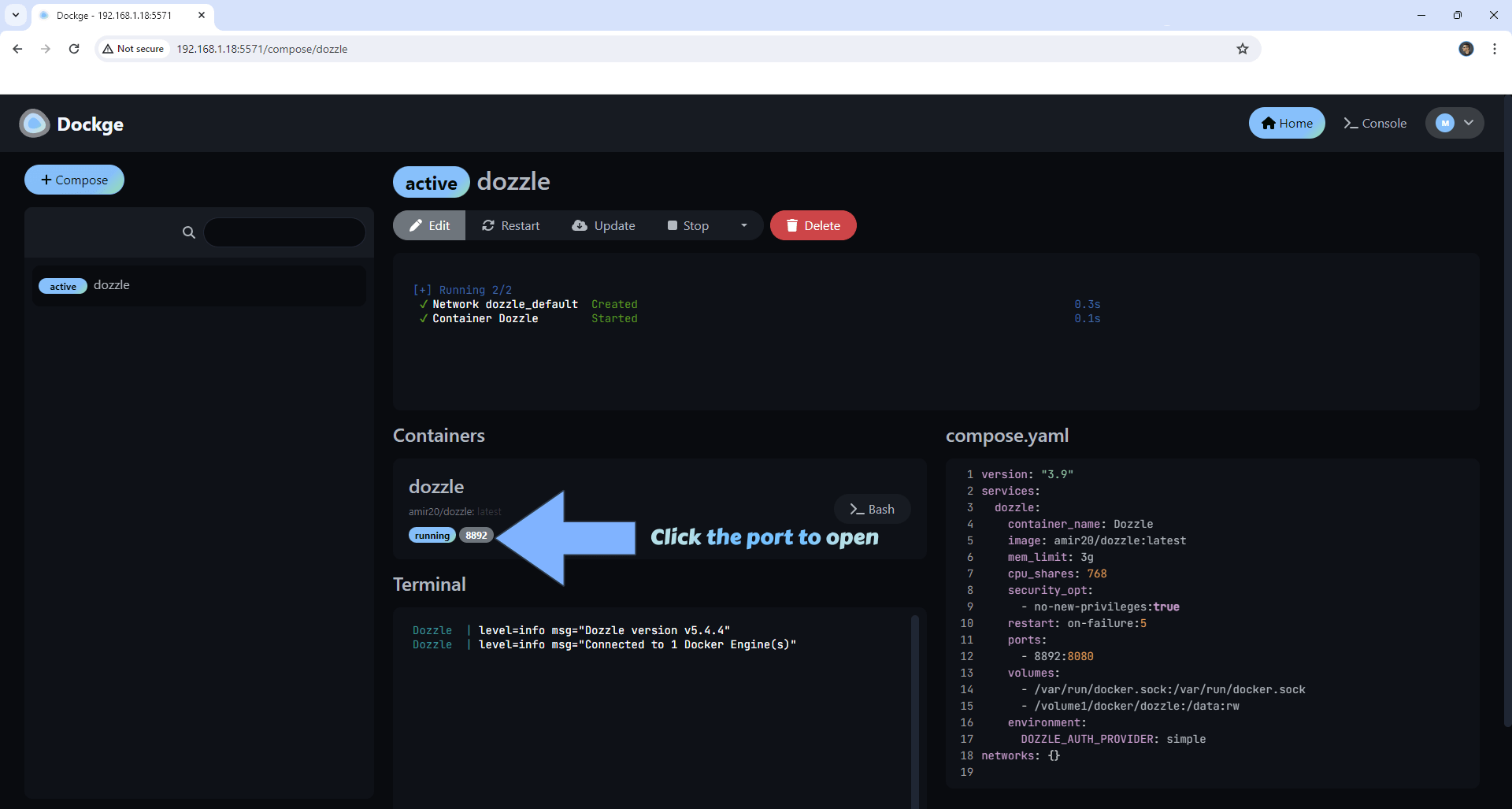
STEP 14
As you can see, you can now access Dozzle.
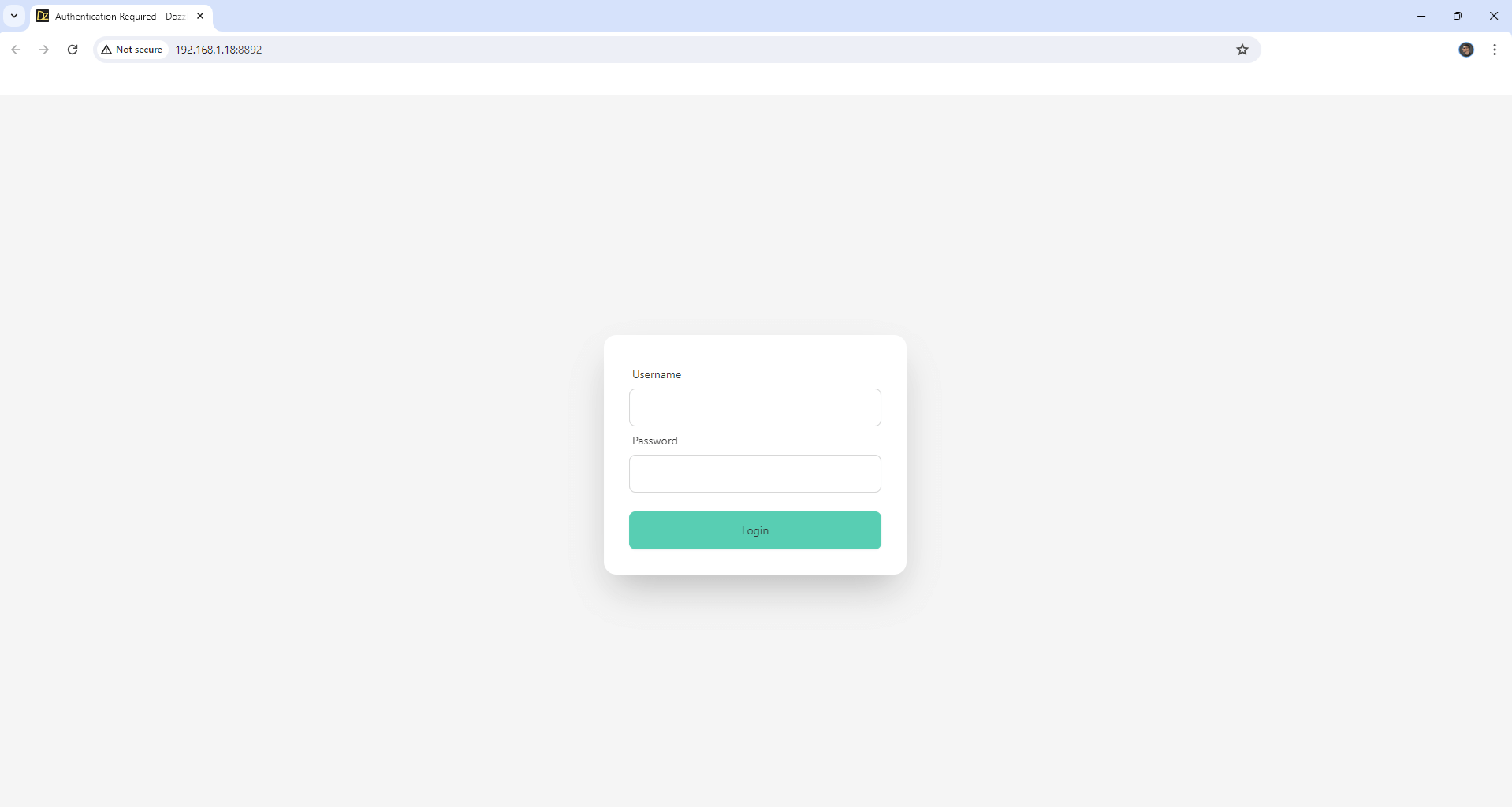
Enjoy Dockge!
If you encounter issues by using this container, make sure to check out the Common Docker issues article.
Note: If you want to run the Dockge container over HTTPS, check How to Run Docker Containers Over HTTPS. In order to make Dockge work via HTTPS, it’s mandatory to activate WebSocket.
Note: Can I run Docker on my Synology NAS? See the supported models.
Note: How to Back Up Docker Containers on your Synology NAS.
Note: Find out how to update the Dockge container with the latest image.
Note: How to Free Disk Space on Your NAS if You Run Docker.
Note: How to Schedule Start & Stop For Docker Containers.
Note: How to Activate Email Notifications.
Note: How to Add Access Control Profile on Your NAS.
Note: How to Change Docker Containers Restart Policy.
Note: How to Use Docker Containers With VPN.
Note: Convert Docker Run Into Docker Compose.
Note: How to Clean Docker.
Note: How to Clean Docker Automatically.
Note: Best Practices When Using Docker and DDNS.
Note: Some Docker Containers Need WebSocket.
Note: Find out the Best NAS Models For Docker.
Note: Activate Gmail SMTP For Docker Containers.
This post was updated on Sunday / August 24th, 2025 at 7:49 PM
